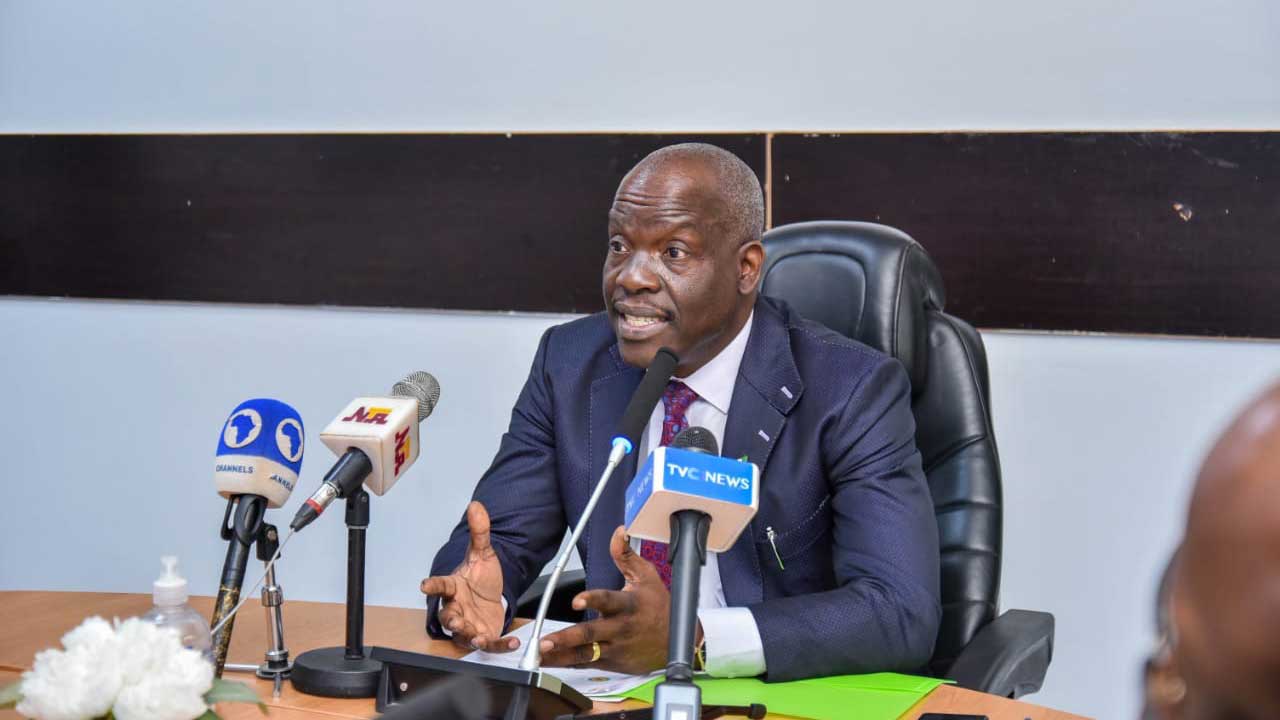
.Says Communities Happy To Be Carried Along
The Host Communities of Nigeria Producing Oil and Gas (HOSTCOM) has commended the Nigerian Upstream Regulatory Commission (NUPRC) for its commitment to the development of the host communities by ensuring that they were carried along in the completion of the Marginal Field Bid Round and the Revoked Assets.
The National President HOSTCOM, His Highness, Dr. Benjamin Style Tamaranebi JP, who made the commendation in a statement issued yesterday in Abuja, said the important aspect is that subsequently, the proceeds from the bid round were made directly to the Federation Account, amounting to N265 billion and USD 18 million in line with the core values of the commission and also in accordance with the provisions of Section 7 (1) of the Petroleum Industry Act (PIA) 2021.
The Marginal Fields Bid Round is a programme initiated by the Federal Government to allocate oil blocks to indigenous companies, promoting local participation and development in the sector. The programme aims to increase oil production, encourage indigenous participation and foster economic growth
On the other hand, Revoked Assets refer to oil blocks or licences that have been withdrawn or revoked from their previous holders, often due to non-performance, non-compliance or other reasons.
These assets are then re-allocated to new companies through processes like the marginal fields bid round.
The combination of the marginal fields bid round and revoked assets have significant implications for Nigeria’s oil and gas industry, including increased indigenous participation, improved oil production, enhanced economic growth and encouragement of local content development and redistribution of oil blocks and licenses
Style disclosed that the HOSTCOM was not left out in the activities which were ongoing before the appointment of the present management team of the NUPRC under the leadership of the Chief Executive Officer, Gbenga Komolafe.
According to Style, HOSTCOM, which is the umbrella body and mouthpiece of the grassroots, has taken stock of the activities of the NUPRC in relation to its partnership with HOSTCOM as contained in the PIA 2021.
“We also want to use this medium to thank the commission’s chief executive for the commission’s consistency in ensuring that the commission is proactive in every matter pertaining to the Host Communities as contained in sections 234 to 257 of the PIA 2021,” he said.
He stated that NUPRC under the leadership of Komolafe has achieved great strides in the upstream sector, which are not limited to the engagement of HOSTCOM in most of its stakeholders’ activities beginning from the formulation of the Host Communities Development Regulation No. 114 of 2022.
The statement added: “Consequently, the Host Communities Regulation was unveiled by the former President, His Excellency, President Muhammadu Buhari and former Federal Minister of State for Petroleum, Chief Timipre Sylva; observed by all stakeholders, including the Senate Committee Chairman for Host Communities, the House of Reps Committee Chairman for Host Communities and the Host Communities of Nigeria Producing Oil and Gas ably represented by the President of HOSTCOM.
“Again, the commission has established a building in the South-South, specifically Yenagoa, Bayelsa State, to bring closer to the people the settlors and communities’ crisis settlement centre, which ordinarily use to have its ADR centre in faraway Lagos State before now, for the expeditious settlement of community cases with the settlors.
“This is the first of its kind after the discovery of oil in the early 50s. Within record time, 17 Regulations were developed, 13 gazetted with HOSTCOM Regulations prioritised in phase 1.
“One hundred and twenty two HOSTCOM Host Communities Development Trusts (HCDTs) were set up to implement the three per cent provision as provided in the PIA. Seventy-two Trusts have been funded up to the tune of over N80 billion and about $150 million also has been remitted to the Host Community’s account and likewise more than 50 HCDT’s yet to be formed.
“NUPRC initiated a partnership with IT companies to develop a digital real-time platform known as HOSTCOMPLY for managing HOSTCOM Provisions for transparency and accountability of HOSTCOM funds between settlors and trustees.
“Sensitisation on PIA HCDT’S Board of Trustees and Secretaries in all affected states is ongoing and the exercise is conducted by Host Community organisation.
“NUPRC has set up a panel to mediate and resolve disputes among HOSTCOM and settlers; also established as contained in the Host Communities Development Regulation
K.
“With a deep sense of responsibility, we have observed with keen interest the transparency demonstrated by the commission in the conduct and adherence to established protocols and regulations to ensure effective conduct of their practices and accountability.
“Following the reassurances of the commission to continue to engage the Host Communities of Nigerian Producing Oil and Gas, we rate the score card of the commission by passing a vote of confidence on the NUPRC and the management team, ably led by Komolafe.
“With regards to the aforementioned strides of the NUPRC for delivering within record time, we call on all meaningful stakeholders to join hands with the NUPRC to facilitate the speedy implementation of the three per cent OPEX, which is overdue by the settlors.
He said HOSTCOM would continue to partner with the NUPRC and the present administration to ensure a good working relationship with the settlors only if they comply with and implement the PIA 2021, with regards to Host Communities Development Regulation No.114 of 2022, and in adherence to all other protocols to yield sustainable development and the participatory rights of the petroleum communities.






